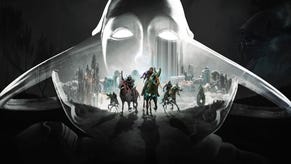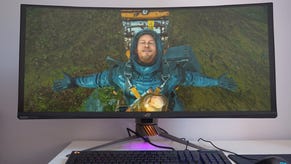Noclip take on Warframe's unlikely success story
Ancient space-ninja history
If you were to look at Warframe now, it's hard to even imagine that Digital Extremes' free-to-play mega-hit ever had humbler origins. Even harder to believe that its very existence was a desperate last-ditch plan to keep the lights on at a struggling studio that had been turned away by every major publisher.
In the latest in their oft-excellent series of candid interview-heavy documentaries, YouTube outfit NoClip went and pinned down the core staff behind Warframe's success, and have managed to extract an hour of surprisingly candid history from them, equally educational and emotionally resonant. Worth a watch.
The first half of the documentary covers the origins of Digital Extremes as a studio, and their struggles to make ends meet while they tried to sell their pitch for a high-concept sci-fi action RPG to an industry obsessed at the time by gritty modern urban combat. While I knew that they were co-developers on much of the early Unreal series, I had forgotten that they also produced the likes of Extreme Pinball, which I played way too much of in my youth.
The latter half of the documentary charts the evolution of the game itself, from its threadbare earliest iteration (containing effectively just one level and a handful of enemy types) right up to its evolution into an open-world game with NPC-filled towns. A direction that even the Warframe team themselves admit is bringing them back to their original Dark Sector concepts. There are some quite candid insights into the good intents behind the business model of a game like this, and how they can fail. There's also some fun anecdotes about how some major gameplay mechanics were inspired by exploits found by creative players.
Noclip have promised that extended cuts of some of these interviews will be coming in the next few weeks, but there's already good a hour of human interest industry history to chew on already. One thing I did find interesting in an almost offhand mention of Digital Extremes selling a majority share of the studio to a pair of Chinese companies (primarily to a chicken meat producer) in 2014. While this doesn't seem to have affected the trajectory of the game or studio, it does feel like something that should have earned a few minutes of interview time.
With that, I'll leave you with an interesting hypothetical: Epic and Digital Extremes were hoping to merge at one point, but the price of tax payments put the companies off the move. Imagine just how different the games industry might look today if they had gone ahead and absorbed that cost. At this point, I'm increasingly convinced that most successes in games can be chalked up to blind luck.










